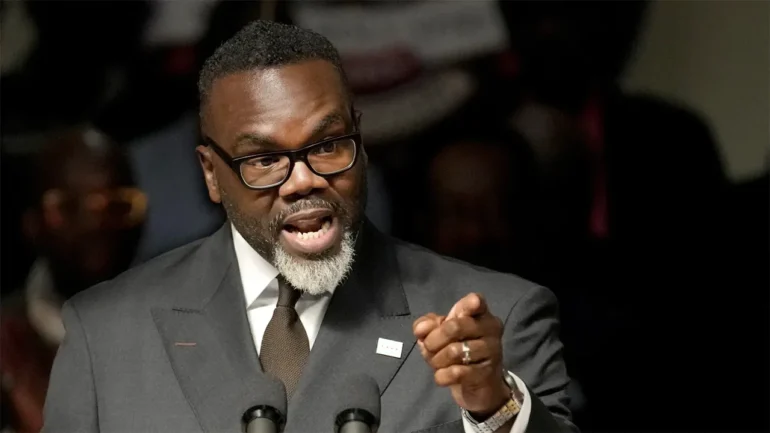In a bold move, Chicago Mayor Brandon Johnson has doubled down on his commitment to protect the city’s immigrants, declaring that the Chicago Police Department (CPD) “will not ever cooperate” with Immigration and Customs Enforcement (ICE). This statement, made during a Tuesday press conference on July 8, 2025, comes amid heightened tensions over ICE raids in Chicago and across the nation, sparked by President Donald Trump’s aggressive immigration policies.
A City’s Defiance
Chicago’s stance is rooted in its Welcoming City Ordinance and compliance with the Illinois Trust Act, both of which limit local cooperation with federal immigration authorities. Johnson, a Democrat, has been vocal about his opposition to the Trump administration’s tactics, calling them “unconscionable” and a “war on our culture, democracy, and humanity.” He argues that ICE’s actions sow division at a time when working-class and marginalized communities need government support the most.
Since Trump took office, ICE has ramped up operations nationwide, including targeted raids in Chicago neighborhoods like Belmont Cragin, Albany Park, and Hermosa in late January 2025. These raids have fueled fear and resistance among residents. Johnson has urged Chicagoans to “rise up” against ICE, whether through protests, legal action, or public dissent, framing the issue as a broader fight for civil liberties.
Community and Faith Leaders Rally
The mayor’s defiance is echoed by community leaders and faith groups. Cardinal Blase Cupich called reports of ICE raid threats “profoundly disturbing,” while Lake Street Church in Evanston declared itself a sanctuary for immigrants. In Chicago’s Pilsen neighborhood, protestors gathered on June 4, 2025, at Plaza Tenochtitlan to demand transparency after allegations surfaced of CPD officers interacting with ICE agents during a South Loop operation. Event organizer Omar Flores claimed to have video evidence of Chicago police “white shirts” engaging with ICE, raising concerns about potential violations of the city’s Welcoming City Ordinance.
City Council members, led by Immigrant Committee Chair Andre Vasquez, have also pressed for clarity. During a recent Committee on Immigrant and Refugee Rights hearing, alderpeople expressed alarm that CPD may have breached the city’s non-cooperation policy, calling for accountability.
A National Divide
Chicago’s resistance is part of a broader movement. Across the U.S., cities like Los Angeles have similarly pledged not to work with ICE, with protests and even violent clashes erupting in some areas. The passage of the “Big Beautiful Bill” spending legislation in early July 2025 has further escalated tensions, providing ICE with a budget that Johnson claims surpasses that of all but 15 of the world’s militaries. Critics, including the mayor, argue this funding fuels an assault on civil liberties, while supporters, like White House spokeswoman Abigail Jackson, accuse Democrats of prioritizing “violent criminal illegal aliens” over American citizens.
Legal and Moral Questions
Johnson’s refusal to cooperate with ICE raises complex legal questions. Federal law prohibits obstructing federal agents, destroying records, or violating court orders, and non-compliance could expose city officials to legal risks. Chicago is working with legal counsel and a coalition of 12 other U.S. cities to navigate these challenges while upholding their sanctuary policies.
For many Chicagoans, the issue is deeply personal. Since August 31, 2022, over 51,000 migrants have arrived in the city from the southern border, seeking safety and opportunity. Johnson frames their protection as a moral imperative, warning that targeting one vulnerable group today could lead to others tomorrow. “None of us are immune from this disease,” he said, calling for unity in resisting what he describes as “terrorism” by ICE.
A City at a Crossroads
As ICE operations intensify, Chicago stands at a crossroads. Will it hold firm as a sanctuary city, risking federal backlash, or face pressure to align with the Trump administration’s hardline policies? For now, Mayor Johnson and his allies are clear: Chicago will resist, protect its residents, and fight for what they see as the soul of their city.
